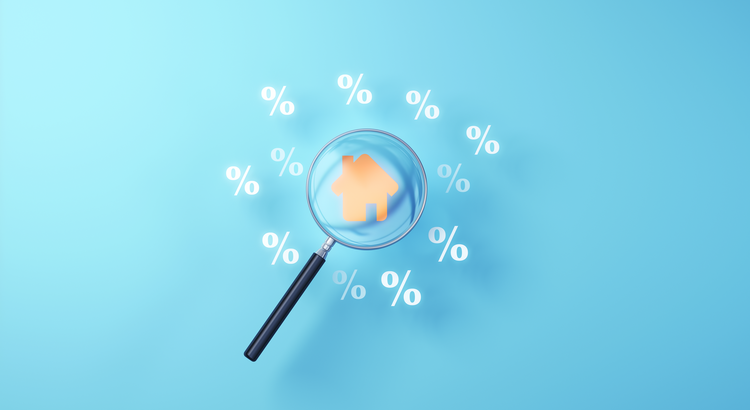Buying a home is one of the most significant financial decisions you’ll make, and one of the first steps in that process is understanding your credit score. Your credit score plays a key role in determining whether you qualify for a mortgage and what interest rate you’ll receive. But with so much conflicting information out there, it’s hard to know: What credit score do you really need to buy a house?
Let’s break down how credit scores impact the homebuying process, the minimum score needed for different types of loans, and how you can improve your credit if you’re not quite where you want to be.
What Is a Credit Score and Why Does It Matter?
Your credit score is a three-digit number that reflects your creditworthiness, based on your credit history. Lenders, including mortgage companies, use your score to assess how risky it might be to lend you money. The higher your score, the more likely you are to receive favorable terms on your loan, such as lower interest rates and better mortgage options.
The most commonly used credit scoring model is the FICO score, which ranges from 300 to 850. Your score is calculated based on several factors, including:
- Payment history (35%): Whether you’ve paid past credit accounts on time
- Amounts owed (30%): The total amount of credit you’re using compared to your credit limits
- Length of credit history (15%): How long you’ve had credit accounts
- Credit mix (10%): The types of credit you have (credit cards, loans, etc.)
- New credit (10%): Recent credit inquiries and new credit accounts
The Minimum Credit Score Needed for Different Mortgage Types
There’s no one-size-fits-all answer to the question of what credit score you need to buy a house because it varies depending on the type of mortgage loan you’re applying for. Let’s take a look at the most common types of home loans and their minimum credit score requirements:
1. Conventional Loans
- Minimum Credit Score: 620
- Best for: Buyers with solid credit and a good down payment
Conventional loans are not insured or guaranteed by the federal government and are often offered by private lenders. To qualify for a conventional mortgage, most lenders require a credit score of at least 620. However, to get the best rates and terms, a higher score (around 740 or above) is recommended. With a higher score, you can expect lower interest rates, which can save you thousands of dollars over the life of your loan.
2. FHA Loans
- Minimum Credit Score: 500–580 (depending on your down payment)
- Best for: First-time homebuyers or those with lower credit scores
Federal Housing Administration (FHA) loans are government-backed and designed to make homeownership more accessible, particularly for first-time buyers. The minimum credit score requirement for an FHA loan is 580 if you want to make a down payment as low as 3.5%. However, if your score is between 500 and 579, you’ll need to put down at least 10% to qualify.
FHA loans are popular with buyers who may have lower credit scores or less savings for a down payment, but keep in mind that these loans also come with mortgage insurance premiums, which increase the overall cost of the loan.
3. VA Loans
- Minimum Credit Score: No official minimum, but 620+ is common
- Best for: Veterans, active-duty service members, and their families
VA loans, backed by the Department of Veterans Affairs, are an excellent option for eligible military personnel. While the VA itself doesn’t set a minimum credit score, most lenders prefer a score of 620 or higher. VA loans don’t require a down payment or private mortgage insurance (PMI), which makes them one of the most affordable loan options for qualified borrowers.
4. USDA Loans
- Minimum Credit Score: 640
- Best for: Buyers in rural areas or eligible suburban locations
USDA loans, backed by the U.S. Department of Agriculture, are designed to help low- and moderate-income buyers in rural areas purchase homes. While the USDA doesn’t set a specific minimum credit score, most lenders look for a score of at least 640 to qualify for the program. USDA loans also offer zero down payment options, but they are only available in certain geographic areas.
How Credit Score Affects Your Interest Rate
While meeting the minimum credit score requirements will help you qualify for a mortgage, your credit score also impacts the interest rate you’ll receive. In general, the higher your score, the lower your interest rate will be. Even a small difference in interest rates can have a significant impact on your monthly payment and the total cost of your loan over time.
For example, a borrower with a 760 credit score might qualify for an interest rate of 3.5%, while someone with a score of 620 might be offered a rate of 5.0%. On a $250,000 mortgage, that difference could mean paying hundreds more each month and tens of thousands more over the life of the loan.
What If My Credit Score Isn’t High Enough?
If your credit score isn’t where you want it to be, don’t worry—there are steps you can take to improve it before applying for a mortgage. Here are a few strategies to help boost your score:
- Pay bills on time: Your payment history is the most important factor in your credit score. Make sure you’re paying all of your bills on time, including credit cards, loans, and utilities.
- Reduce credit card balances: Aim to keep your credit utilization (the amount of credit you’re using compared to your credit limit) below 30%. Paying down credit card balances can improve your score quickly.
- Avoid opening new accounts: Each time you apply for new credit, a hard inquiry is added to your credit report, which can lower your score. Limit new applications before applying for a mortgage.
- Check your credit report for errors: Mistakes on your credit report can drag down your score. Request a free copy of your credit report and dispute any errors you find with the credit bureaus.
- Become an authorized user: If you have a family member with good credit, ask if they can add you as an authorized user on one of their accounts. This can help boost your credit score by adding their positive payment history to your credit report.
In Conclusion: Focus on Building a Strong Credit Profile
While it’s possible to buy a house with a credit score as low as 500, working on improving your score can open the door to better mortgage options and lower interest rates. The ideal credit score for buying a home depends on the type of loan you’re seeking, but aiming for a score of 620 or higher will give you more options. If your score needs improvement, take proactive steps to boost it, and you’ll be in a much stronger position when it comes time to secure a mortgage and buy your dream home.

Providing guidance and assisting motivated buyers, sellers, tenants, landlords, and investors in marketing and purchasing property for the right price under the best terms. Determining clients’ needs and financial ability to purchase the best home for them. Call me today and let me help you find a home that can change your life!
